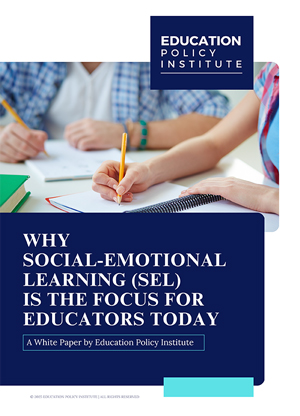Integration of artificial intelligence in education is the new normal and it is the educational industry that is reaping the most out of AI. But in this world of opportunities for both good and bad, leaving ethics apart would cause a humanitarian catastrophe. Thus, attending to the ethical considerations in AI education is just as crucial as implementing AI in education. Schools and educational institutions being excited about AI technologies brings a critical conversation regarding the ethical implications emerging in this digital era. Balancing, the benefits of AI and the safeguarding of the ethical properties poses a significant challenge for educators, policymakers, and technologists alike. So, here we would explore more about the emergence of AI in education, ethics of AI in education and a few possible solutions.
The Rise of AI in Education
Education has been acknowledged as a fundamental requirement for centuries, leading to the establishment of various systems such as homeschooling, classrooms, schools, and eventually, larger colleges and universities with structured syllabi. Evolving from a luxury to an essential need, education has now seamlessly integrated with technology, attaining elevated standards. Currently, AI, through tools like ChatGPT, RoBERTa, ERNIE, Squirrel AI, and others, has permeated all education levels.
In a broader context, these tools could potentially replace human involvement and the essence of schooling altogether. The integration of AI into education heralds a new era of personalized learning and efficient teaching methods.
In a study (Xieling Chen, 2020), it is stated that, the research in AI in Education (AIEd) has seen a persistent rise in interest and influence over time. Simultaneously, it also mentions that limited efforts have been made to integrate deep learning technologies into education, and there is a scarcity of studies bridging the gap between AI utilization and exploration of educational theories, indicating a considerable journey ahead.
The journey of AI being a part of education is a gradual evolution, traversing along with advancements in technology, transforming educational practices and acknowledging the need and benefits of incorporating AI into educational settings.
AI's foray into education traces back to the 1960s when researchers and educators started exploring computers' potential to enhance learning. This era saw the emergence of computer-based instruction (CBI) systems, laying the groundwork for AI integration in education by introducing adaptive feedback and personalized instruction elements.
Then comes the Knowledge-Based Systems Era during 1970-90s which witnessed a shift toward knowledge-based systems in AI education. Intelligent tutoring systems, such as Intelligent Computer- Assisted Instruction (ICAI), laid the foundation for personalized instruction based on individual student needs.
To follow, comes the Internet revolution of the 1990s and the 2000s. The internet's ascendancy broadened the scope of educational technology, witnessing a surge in e-learning platforms and online courses. Virtual learning environments and simulations also started integrating AI elements during this transformative period.
Then arises the period of machine learning, data analytics and personalized learning. Platforms such as Khan Academy and Duolingo capitalized on adaptive learning technologies, creating personalized educational experiences.
In the recent past, there has been an increased emphasis on personalized learning. AI, using technologies like natural language processing and machine learning, analyses individual learning styles, preferences, and performance data. This has led to the creation of intelligent tutoring systems, adaptive learning platforms, and educational chatbots, shaping a more customized and effective educational approach.
Finally, we stand in a position where ethical considerations and challenges is the key talk which poses issues such as data privacy, algorithmic bias, and the digital divide putting forth the challenge of striking the balance, which is why even this article have come to life.
Ethical Considerations of AI in Education and Resolving Them
The increasing influence of Artificial Intelligence (AI) in the realm of education brings forth a pressing need to address ethics of AI in education. We would be exploring the ethical dimensions associated with the incorporation of AI in education, scrutinizing potential risks, societal implications, and the essential call for a responsible and equitable framework. While AI technologies offer unparalleled prospects for personalized learning, enhanced efficiency, and innovation, it is imperative to navigate the ethical challenges to guarantee a fair, inclusive, and ethically robust educational landscape.
-
1. Impact on humans- students and teachers
In a study by the World Economic Forum, it is stated that teachers dedicate approximately 50 hours per week, with less than half of that time devoted to direct interaction with students. This shows that AI presents the promise of enhancing personalized education but raises concerns about a potential decrease in socializing while learning, decreasing student-teacher relationships and influencing social dynamics in the classroom.
To solve this, we would have to promote collaborative AI integration; which refers to the development of AI tools that foster collaboration, support group activities, discussions, and collective problem-solving, which ensures that personalized learning does not isolate students from each other.
Another way is to integrate Social-Emotional Learning (SEL) programs that focus on interpersonal skills, communication, and teamwork which helps students navigate the evolving social dynamics influenced by AI technologies.
-
2. Privacy concerns
Privacy concerns arise from the extensive personal information shared on online platforms, with AI-based tech companies sometimes violating data access and security standards. While consent requests aim to mitigate these concerns, many users unknowingly share sensitive metadata, compromising their privacy and agency. Scholars highlight ethical issues when students and parents are compelled to use these algorithms in education, even if they explicitly agree to privacy concessions, particularly in public schools where alternatives may be limited.
To resolve this issue, we need to establish transparent consent procedures that educate users on the information they share, ensuring full awareness of the disclosed metadata also providing users with opt-out mechanisms offers choices for those who are uncomfortable with certain levels of data sharing, ensuring that the use of AI in education remains voluntary.
-
3. Bias and Discrimination
AI platforms often embed existing power structures and biases into machine-learning models. If the training data reflects societal prejudices, the AI may perpetuate and even amplify these biases. Similarly, Natural language processing models may exhibit biases in understanding language, and educational content might carry cultural biases, disadvantaging students from different cultural backgrounds.
Addressing bias and discrimination in AI education requires a multi- faceted approach; formerly ensuring that training data used for AI models is diverse and representative of the student population and then, implementing continuous monitoring and evaluation to detect and rectify biases on time.
Though there are other ethical considerations as well, they appear as branches of these main concerns pointed out here.
Final remarks
In conclusion, as AI becomes integral to education, ethical considerations must take centre stage to ensure a harmonious evolution. The journey from AI's inception in the 1960s to today's advanced systems underscores the transformative impact on teaching and learning. However, ethical challenges like privacy, bias, and social dynamics demand immediate attention. So, collaborative AI integration, transparent consent procedures, and diverse data practices emerge as crucial solutions. At the same time, striking a balance between AI's benefits and ethical safeguards is the collective responsibility of educators, policymakers, and technologists. By navigating these ethical complexities, the education sector can harness AI's potential for personalized, efficient, and inclusive learning.
Latest
Trends blogs
- Automation, Artificial Intelligence, and the Future of Human-Centered Education
- Mid-Career Education in a Changing Labor Market
- The Next Phase of STEM Education: The Role of Artificial Intelligence in Classroom Curricula
- Education Technology in 2026: Trends Driving the Next Wave of Learning
Focus blogs
- Research-Driven Education: Strengthening Strategies, Policies, and Classroom Practice
- Professional Certifications for Career Growth: What Students and Young Professionals Need to Know
- Building a High-Impact Center of Excellence: What You Need to Know
- Beyond Graduation: The Importance of Lifelong Learning in Higher Education





